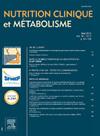MIND饮食与痴呆之间的关系:一项纵向观察荟萃分析
IF 0.4
4区 医学
Q4 ENDOCRINOLOGY & METABOLISM
引用次数: 0
摘要
痴呆症是与认知能力下降有关的全球主要健康问题,它促使人们对饮食模式产生兴趣,以减轻其发病。本系统综述和荟萃分析研究了地中海- dash饮食干预对神经退行性延迟(MIND)对认知功能和痴呆风险的影响。MIND饮食强调神经保护食物,如绿叶蔬菜、浆果、坚果、全谷物和鱼,目的是减少氧化应激和炎症。我们回顾了纵向研究,以评估MIND饮食依从性与认知结果之间的关系。通过PubMed、Web of Science、Embase和Cochrane图书馆的综合文献检索,确定了14项符合条件的研究,包括纵向研究,总样本量范围显著。我们的研究结果表明,痴呆风险的合并优势比为0.79 (95% CI: 0.73至0.86),表明MIND饮食具有显著的保护作用。此外,认知衰退分析显示,尽管异质性很高(I2 = 99.9%),但保护性合并效应大小为0.03 (95% CI: 0.02至0.03)。这些结果强调了MIND饮食作为促进老年人认知健康和降低痴呆风险的有效策略的潜力。然而,研究设计和饮食评估方法的可变性表明需要进一步的研究,包括精心设计的随机对照试验,以建立因果关系并探索饮食影响的潜在机制。本文章由计算机程序翻译,如有差异,请以英文原文为准。
Association between MIND diet and dementia: A longitudinal observational meta-analysis
Dementia, a leading global health concern associated with cognitive decline, has prompted interest in eating patterns to mitigate its onset. This systematic review and meta-analysis examined the impact of the Mediterranean-DASH Diet Intervention for Neurodegenerative Delay (MIND) on cognitive function and dementia risk. The MIND diet emphasizes neuroprotective foods, such as leafy greens, berries, nuts, whole grains, and fish, with the aim of reducing oxidative stress and inflammation. We reviewed longitudinal studies to evaluate the association between MIND diet adherence and cognitive outcome. A comprehensive literature search across PubMed, Web of Science, Embase, and Cochrane Library identified 14 eligible studies, including longitudinal studies, with a total sample size ranging significantly. Our findings indicate a pooled odds ratio of 0.79 (95% CI: 0.73 to 0.86) for dementia risk, suggesting a significant protective effect of the MIND diet. Additionally, cognitive decline analysis yielded a protective pooled effect size of 0.03 (95% CI: 0.02 to 0.03), albeit with high heterogeneity (I2 = 99.9%). These results underscore the potential of the MIND diet as an effective strategy for promoting cognitive health and reducing dementia risk in older adults. However, the variability in study design and dietary assessment methods suggests the need for further research, including well-designed randomized controlled trials, to establish causal relationships and explore the underlying mechanisms of diet effects.
求助全文
通过发布文献求助,成功后即可免费获取论文全文。
去求助
来源期刊

Nutrition Clinique et Metabolisme
医学-内分泌学与代谢
CiteScore
0.80
自引率
16.70%
发文量
216
审稿时长
78 days
期刊介绍:
Nutrition Clinique et Métabolisme is the journal of the French-speaking Society of Enteral and Parenteral Nutrition. Associating clinicians, biologists, pharmacists, and fundamentalists, the articles presented in the journal concern man and animals, and deal with organs and cells. The goal is a better understanding of the effects of artificial nutrition and human metabolism. Original articles, general reviews, update articles, technical notes and communications are published, as well as editorials and case reports.
 求助内容:
求助内容: 应助结果提醒方式:
应助结果提醒方式:


